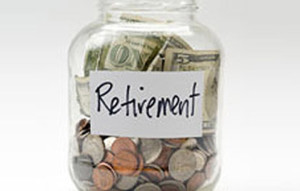Pre-retirement catch-up strategies
 Many people become concerned later in their working lives that their superannuation savings may not be enough to give them the retirement lifestyle they had hoped for. If you think you may have left your super run a little late, consider these catch-up strategies.
Many people become concerned later in their working lives that their superannuation savings may not be enough to give them the retirement lifestyle they had hoped for. If you think you may have left your super run a little late, consider these catch-up strategies.
Salary sacrifice into super
Where your employer allows it, you should consider making additional contributions to your super fund directly from your pre-tax salary. You can contribute up to $25,000 per year and only pay the concessional rate of tax – up to just 15% compared to your marginal tax rate. However, because the Superannuation Guarantee contributions made by your employer on your behalf also count towards this limit, you need to make sure you don’t exceed this limit as you may incur penalty tax.
Spouse contributions
By contributing to a superannuation fund for your spouse, you can boost your joint retirement savings, maximise your retirement income and pay significantly less tax. If your spouse or partner is on a low income you may also be able to claim a generous tax rebate. Most importantly, splitting your super gives you a more tax-effective joint income in retirement.
Super investment strategy
If your super is invested in cash or other conservative investments, you may be able to increase your investment returns with a higher proportion of growth investments, for example shares. A difference of just 2% pa can make a vast difference to the sum you have at retirement.
Check how your super is invested and with the advice of your financial planner consider an investment strategy that will build your super savings faster.
Shares into super
Where you have invested in your own shares then you may be able to move them into your super fund. The primary benefit is the lower tax on investment earnings within the tax-effective super environment – a maximum of 15% instead of up to 46.5% outside super – which means your investment capital will grow much faster.
Save sooner, save more
There are of course other ways in which you can build up assets for your retirement, although super is generally more tax-effective than most. Whichever way you save, don’t put it off or you will reduce the benefits of compounding investment returns (interest earned upon reinvested interest).
Take a close look at your budget and assess how much you could put aside, then contact us to discuss re-retirement catch-up strategies.
Source | IOOF









